Few names in modern cinema and theatre evoke as much admiration as Anthony Minghella. Known for his emotional depth, artistic precision, and intimate storytelling, Minghella’s creative legacy continues to inspire filmmakers and playwrights across the world. His life and career are a perfect blend of artistic curiosity, literary mastery, and cinematic brilliance.
Quick Bio
| Quick Bio | Details |
|---|---|
| Full Name | Anthony Minghella CBE |
| Date of Birth | January 6, 1954 |
| Place of Birth | Ryde, Isle of Wight, England |
| Date of Death | March 18, 2008 |
| Occupation | Film Director, Screenwriter, Playwright, Producer |
| Nationality | British |
| Education | University of Hull (English and Philosophy) |
| Famous Works | The English Patient, The Talented Mr. Ripley, Cold Mountain |
| Awards | Academy Award, BAFTA, Golden Globe |
| Spouse | [Insert] |
| Children | Max Minghella |
Early Life and Background
Anthony Minghella was born on the Isle of Wight in 1954 to a family of Italian descent. His parents owned an ice cream factory, and their small business shaped his appreciation for hard work and community. From an early age, Minghella was drawn to the power of storytelling — a fascination that would later define his career. His upbringing in a modest, close-knit environment gave him a sensitivity toward human emotions and personal relationships, themes that would become central to his later works.
University of Hull, Minghella studied English and Philosophy, fields that fueled his intellectual curiosity. He devoured the works of Samuel Beckett, Harold Pinter, and Tom Stoppard, absorbing the rhythm of dialogue and the nuance of silence. His exposure to philosophy helped him probe identity, morality, and love, themes that became hallmarks of his storytelling. It was during these years that he began writing short plays and teaching drama—early signs of his creative discipline.
Anthony Minghella as a Playwright
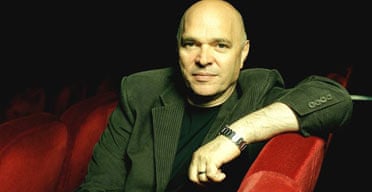
Before conquering cinema, Minghella earned respect as a playwright. His notable works, Made in Bangkok, and A Little Like Drowning, were celebrated for lyrical writing and emotional complexity. He often examined the distance between what people say and what they truly feel. Critics praised his ability to blend humor, sadness, and moral tension into human stories that felt intimate yet universal.
Transition from Theatre to Film
Minghella’s move from stage to screen was seamless. His deep understanding of character and dialogue gave him a natural advantage in film storytelling. Early in his career, he wrote episodes for British television dramas such as Inspector Morse and Grange Hill, sharpening his sense of pacing and suspense. His directorial debut, Truly, Madly, Deeply (1990), revealed his gift for mixing fantasy with real emotion. This romantic drama won critical acclaim and established him as a fresh cinematic voice capable of blending wit and poignancy.
Breakthrough with The English Patient
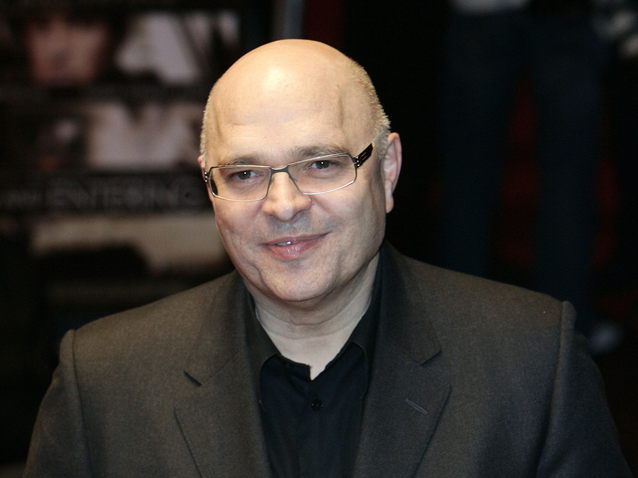
Anthony Minghella’s global breakthrough came with The English Patient (1996), adapted from Michael Ondaatje’s novel. The film became an international phenomenon, earning nine Academy Awards, including Best Director and Best Picture. Minghella’s direction captured sweeping romance, tragic love, and human fragility with extraordinary elegance. His attention to visual detail and emotional rhythm turned the film into a timeless masterpiece. For Minghella, the story’s core lay not in war or adventure but in the cost of passion and betrayal—a theme he explored throughout his work.
The Talented Mr. Ripley and Cold Mountain
After The English Patient, Minghella continued to deliver cinematic brilliance. The Talented Mr. Ripley (1999) showcased his fascination with identity, envy, and deception. Through the chilling charm of Tom Ripley, Minghella examined how ambition can corrupt innocence. The film earned five Oscar nominations and solidified his reputation as a director who could merge style with psychological depth.
In Cold Mountain (2003), he returned to epic storytelling, adapting Charles Frazier’s novel into a moving Civil War romance. Starring Jude Law, Nicole Kidman, and Renée Zellweger, the film captured the emotional cost of survival and love amid chaos. Minghella’s direction balanced grand landscapes with intimate human pain, reaffirming his mastery of visual poetry.
Writing Style and Creative Vision
Anthony Minghella possessed a distinctive narrative voice. His scripts were rich in emotionally layered dialogue and philosophical undertones. He believed in exploring the contradictions of love and loss, creating characters who lived in moral gray zones. Minghella once said that every story should “make the familiar strange and the strange familiar,” a belief reflected in his hauntingly beautiful storytelling. His blending of realism and poetic imagination gave his films enduring emotional power.
Awards and Recognition
Minghella’s achievements earned him a place among Britain’s most honored filmmakers. The English Patient alone brought him an Academy Award for Best Director, a BAFTA for Best Film, and international critical acclaim. He also received multiple nominations for The Talented Mr. Ripley and Cold Mountain. In 2001, he was appointed Commander of the Order of the British Empire (CBE) for his contributions to film and drama. His awards reflected not only talent but an artistic integrity admired across the globe.
Later Career and Television Work
Beyond feature films, Anthony Minghella remained active in theatre and television. He directed operas such as Madama Butterfly for the English National Opera, showcasing his versatility across art forms. As chairman of the British Film Institute, he supported emerging artists and championed independent cinema. In television, he contributed to The No. 1 Ladies’ Detective Agency (2008), demonstrating his commitment to nurturing diverse voices in storytelling.
Personal Life and Family
Away from the camera, Minghella led a private yet deeply fulfilling life. He found creative inspiration in their shared appreciation for art and performance. Their son, Max Minghella, followed in his father’s footsteps as an actor and filmmaker. Friends described Anthony as humble, generous, and endlessly curious. Despite global fame, he maintained close ties to his Isle of Wight roots and valued kindness above all artistic recognition.
Legacy and Influence on Modern Cinema
Anthony Minghella’s influence extends far beyond his filmography. His mastery of adaptation, ability to translate literature into powerful visual emotion, and deep humanism have inspired countless directors and writers. His films continue to be studied in film schools for their structure, tone, and visual storytelling. Modern British cinema owes much to his balance of intellect and sensitivity. Even years after his passing, his works remind audiences that true art lies in empathy.
Tragic Passing and Enduring Memory
The film world was stunned when Anthony Minghella passed away suddenly in 2008 at just 54 due to complications following surgery. His death left an irreplaceable void in British arts. Yet, his legacy endures through his films, his influence on younger filmmakers, and the continued admiration of audiences worldwide. Today, his name stands for elegance, intelligence, and emotional truth—qualities that define timeless storytelling.
Remembering Anthony Minghella
To remember Anthony Minghella is to celebrate an artist who believed that storytelling could bridge hearts and cultures. Whether through the haunting desert landscapes of The English Patient or the psychological intensity of The Talented Mr. Ripley, his films offer enduring lessons about compassion and creativity. His artistry continues to resonate because it reflects what it means to be human—fragile, searching, and capable of profound love.
FAQs
Who was Anthony Minghella?
A British playwright and filmmaker best known for The English Patient, The Talented Mr. Ripley, and Cold Mountain.
What awards did Anthony Minghella win?
He won an Academy Award, BAFTA, and Golden Globe for The English Patient.
Where was Anthony Minghella born?
He was born in Ryde, Isle of Wight, England, in 1954.
How did Anthony Minghella die?
He passed away in 2008 due to surgical complications.
What is Anthony Minghella’s legacy?
His films continue to inspire storytellers with their blend of emotional depth, visual beauty, and human truth.
For More Updates Visit: Biomagazine

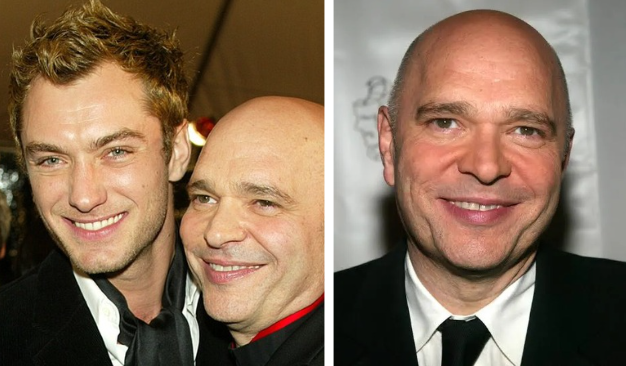






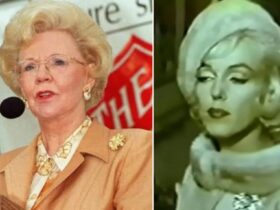
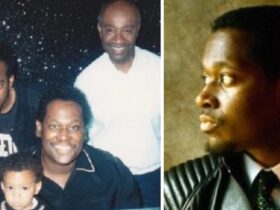


Leave a Reply